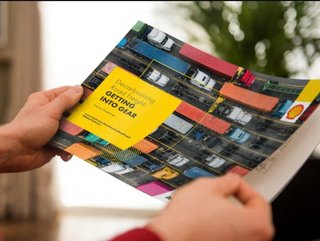Cleaner road freight 'hampered by infrastructure & demand'

Shell has released a joint report with Deloitte that shows there are major global barriers to achieving cleaner road freight.
The main barriers are a lack of regulatory incentives, poor infrastructure, and limited demand from shippers.
Called Decarbonising Road Freight: Getting into Gear, the report is drawn from views garnered from road freight leaders.
The report also concludes that road freight decarbonisation is close to an inflection point “due to increasing regulatory and market pressure, and will evolve faster than many expect”.
Road freight is massive. An estimated 3 million companies operate 217 million vehicles globally, and the haulage sector accounts for around 9% of global carbon dioxide emissions, with demand for road freight set to double before 2050.
“Trucks move almost everything that modern society depends on in daily life,” Shell Downstream & Renewables Director Huibert Vigeveno says, echoing this fact in a foreword to the report.
He adds that the report is “driven by an urgent need for collaboration”. Findings are drawn from 150 interviews across the industry, from logistics companies to vehicle manufacturers and regulators.
Shell report highlights net zero solutions
As well as barriers to decarbonisation, the report also highlights practical solutions for organisations looking to transition towards renewable energy systems.
These include:
- Scaling-up the replacement of small and medium-sized trucks and buses in viable short-range and urban duty cycles using existing battery electric vehicle (BEV) and Fuel cell electric vehicles (FCEV) solutions
- Targeted deployment of transition technologies, including biodiesel-powered trucks, around existing points of supply
- Reducing emissions through digitisation and analytics tools and also through improvements in aerodynamics and fuel and lubricant quality.
- Building demand for heavy-duty zero-emission trucks and bring down their cost
- Using partnerships to deploy zero-emission trucks along high-traffic corridors, with shared infrastructure and a dedicated fuel supply.
- Establishing partnerships and joint ventures between OEMs and component providers for early production of zero-emission trucks
Vigeveno adds: “Given the current trajectory of decarbonisation in the road freight sector, the Paris Agreement targets will not be met.
“This is a challenge, but also an opportunity for first movers to redefine the energy mix, claim market share, and introduce new products and business models.”






